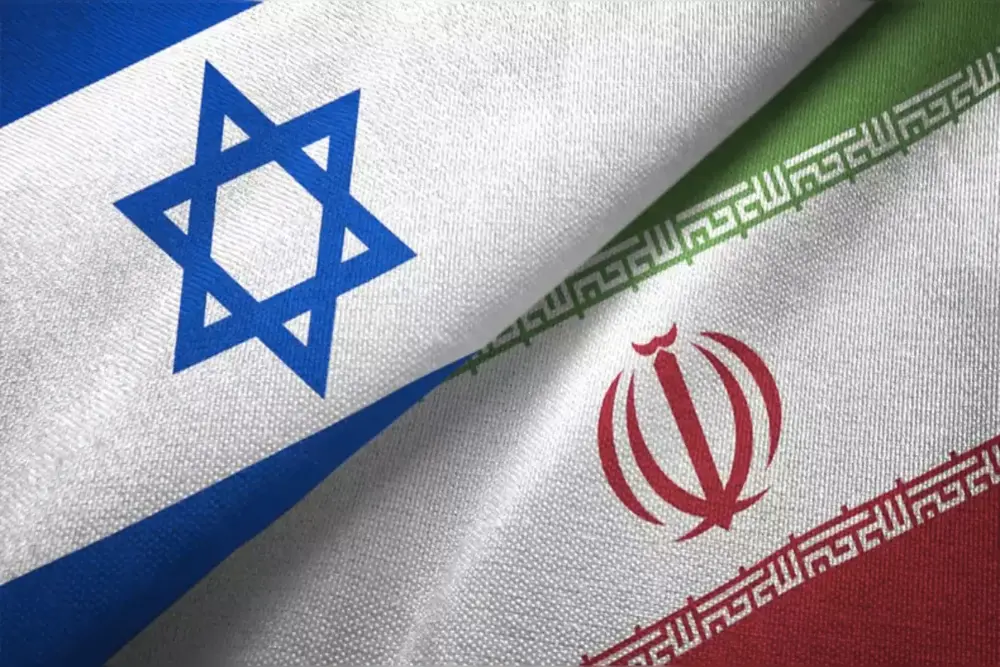Watching the tensions rising year by year in the Middle-East, it is not very hard to guess the reason behind that heating. In fact, it all goes to the presence of relatively-equal and competing powers in the region, from Iran and Turkey, to Israel, Saudi Arabia and Egypt. These powers have different strategic agendas and are supported by different global powers which also have different opposing interests in the Middle East.
In the case of Israel and Iran, there are some factors in the game which differentiate their competition from other regional ones. Both the countries have wide range of resources. Both the countries have links to totally-different set of global alliances. Both countries share central geographies of influence, such as Syria, Iraq, Lebanon and Yemen. Furthermore, both countries have different political ideologies, a factor helped much in making them harsh regional competitors and enemies.
In numbers, Israel GDP is 522 Billion (USD), making it the second largest economy in the Middle East after Saudi Arabia. Meanwhile, Iran’s GDP is about 388 Billion (USD), a number that is also effective in terms of economic power. Israel’s geography allows it to be a main part of International trade routes between Asia, Europe and North America, while Iran’s location gives it a premium advantage in being a main transit route between Asia and Europe.
Iran mainly enjoys very strong ties with two great powers, Russia and China, in every sphere, politically, militarily and economically. Meanwhile Israel is a top Western ally in the Middle East, some analysts goes further to describe Israel as “An extension of America’s land outside its borders”. Having opposite nature of global alliances will probably further complicate the relation between the two powers, because each of Iran and Israel has to seriously consider the interests of their global supporters in the case of “rapprochement” or indirect negotiations.
Israel has the second largest military budget in the Middle East -after Saudi Arabia- and the 16th in the global ranking. Tel-Aviv’s defense budget is estimated to be 27.5 billion (USD) in 2023. On the other hand, Iran’s military budget is estimated to be 10.3 billion (USD) last year. Both the budgets are considered to be big and both the budgets are used to finance advanced weapon development research. Therefore, both the armies are considered to be well-equipped and highly trained.
Israel is a nuclear power while it has on the biggest air-force power in the Middle East, not to mention its advanced arsenal of cruise missiles and long range missiles. Tel-Aviv also enjoys an extensive military support from US, UK, Germany and other technologically advanced armies. However, Iran’s army is larger in the number of servicemen and also in the number of mechanized machines and artillery forces. Tehran has steadily developed long range missiles -over the past few years- that can strike any point in Israel, while it’s known to acquire a large fleet of advanced attack drones.
Both countries have well-researched nuclear programs, however, Israel’s one is far more advanced than the Iranian one. Israel is known for having nuclear bombs in their non-traditional weapon arsenal, while Iran is working on developing its nuclear program day by day and with no signs of stopping. Apparently, Iran knows for sure that a homemade nuclear bomb is the only guarantee to deter any possible Israeli use of nukes against its forces or lands. Thus, cancelling the Iranian nuclear program or dismantling it is a “non-realistic” option in the current regional atmosphere.
Relating to the continuous advancement of the Iran’s nuclear program, it is highly believed, Israel will eventually attack Iran and “destroy its nuclear program” if Tehran gets too close from developing a nuclear bomb. Furthermore, many Israeli officials announced their preference to deal with a non-nuclear Iran rather than a nuclear-armed Iran. In other words, Iran is already powerful, extended and much influential in the Middle East, and the development of its first nuclear bomb will much complicate the atmosphere for Tel-Aviv and contain its influence even further.
In addition to the nuclear dilemma between the two states, they both share massive “geographies of influence” -such as Syria and Lebanon- which have shortened the distance between the two armies and rose the tensions higher than ever. The latest bombing of the Iranian embassy in Damascus can be a good example of that. Today, Tel-Aviv and Tehran are no more regional powers separated by buffer countries, but rather powers fighting wars on “direct frontiers”, whether in Syria, Yemen or Lebanon. In other words, the closer the armies to each others the higher the risk of direct conflict.
If Iran continues developing its nuclear capabilities and Israel seeing these capabilities as a “national threat” to its future, the war between the two countries will eventually happen. All recent developments are logically leading to this alarming conclusion and not to anywhere else.















Comments